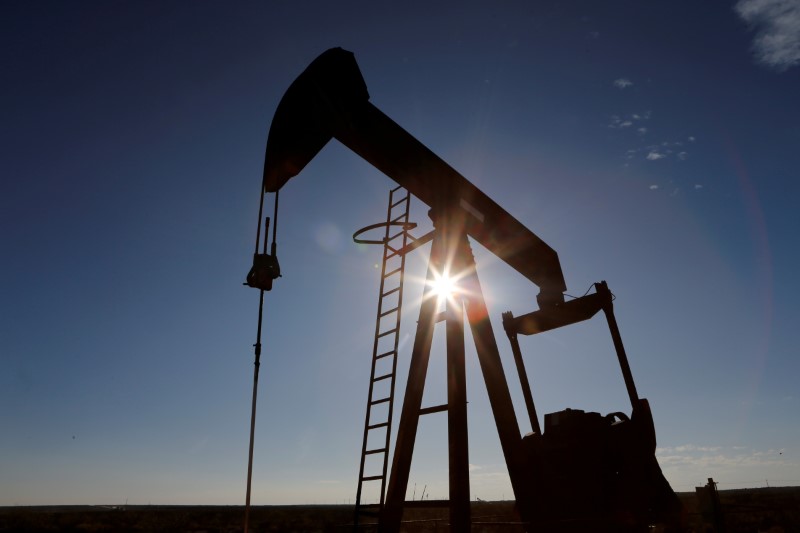By Yuka Obayashi
TOKYO (Reuters) - Crude oil futures extended gains on Wednesday after a bigger-than-expected draw in U.S. crude stockpiles and as solid U.S. and Chinese factory activity fuelled optimism of a recovery from the coronavirus pandemic, boosting investor risk appetite.
Brent crude (LCOc1) futures rose 45 cents to $46.03 a barrel as of 0559 GMT, climbing for a third day.
U.S. West Texas Intermediate futures (CLc1) rose 43 cents to $43.19, following the previous day's gain of 15 cents.
U.S. crude inventories fell by 6.4 million barrels in the week to Aug. 28 to 501.2 million barrels, the American Petroleum Institute (API) said, against analysts' expectations for a draw of 1.9 million barrels.
Gasoline stocks also fell by 5.8 million barrels, more than analysts' estimates of a draw of 3.0 million barrels.
Analysts had forecast a sixth weekly drawdown in U.S. crude inventories in a Reuters poll.
"A bigger-than-expected draw in the U.S. stockpiles and growing hope for an economic recovery in the United States and China after healthy factory data prompted buys in oil futures," said Hiroyuki Kikukawa, general manager of research at Nissan (OTC:NSANY) Securities.
U.S. manufacturing activity accelerated to a more than 1-1/2-year high in August amid a surge in new orders, lending support to Wall Street and oil markets.[MKTS/GLOB]
China's factory activity also expanded at the fastest clip in nearly a decade in August, bolstered by the first increase in new export orders this year as manufacturers ramped up production to meet rebounding demand, a private survey showed on Tuesday.
"Slower-than-expected resumption of oil output in the United States after Hurricane Laura raised concerns over tighter supply," Kazuhiko Saito, chief analyst at Fujitomi Co, said.
U.S. Gulf of Mexico offshore oil output on Tuesday was down by 525,099 barrels per day, or 28.4% of the region's daily production, the U.S. Department of Interior reported, as energy companies restarted more activity in the aftermath of Hurricane Laura.
Still, 71 of the U.S. Gulf of Mexico's 643 manned platforms remained evacuated, down from 117 production platforms on Monday, the regulator said.
On the global supply side, oil output by the Organization of the Petroleum Exporting Countries (OPEC) rose by about 1 million barrels per day (bpd) in August, a Reuters survey found.
From May 1, OPEC and its allies, known as OPEC+, made a record cut of 9.7 million bpd, or 10% of global output, after the novel coronavirus destroyed one-third of world demand. From Aug. 1, the cut tapered to 7.7 million bpd until December.
The United Arab Emirates pumped 2.693 million bpd in August, above its OPEC+ quota, after hot weather and people holidaying at home drove associated gas demand for power generation, two sources familiar with the matter told Reuters.

"Higher output by the UAE capped gains in oil prices," Nissan Securities' Kikukawa said.